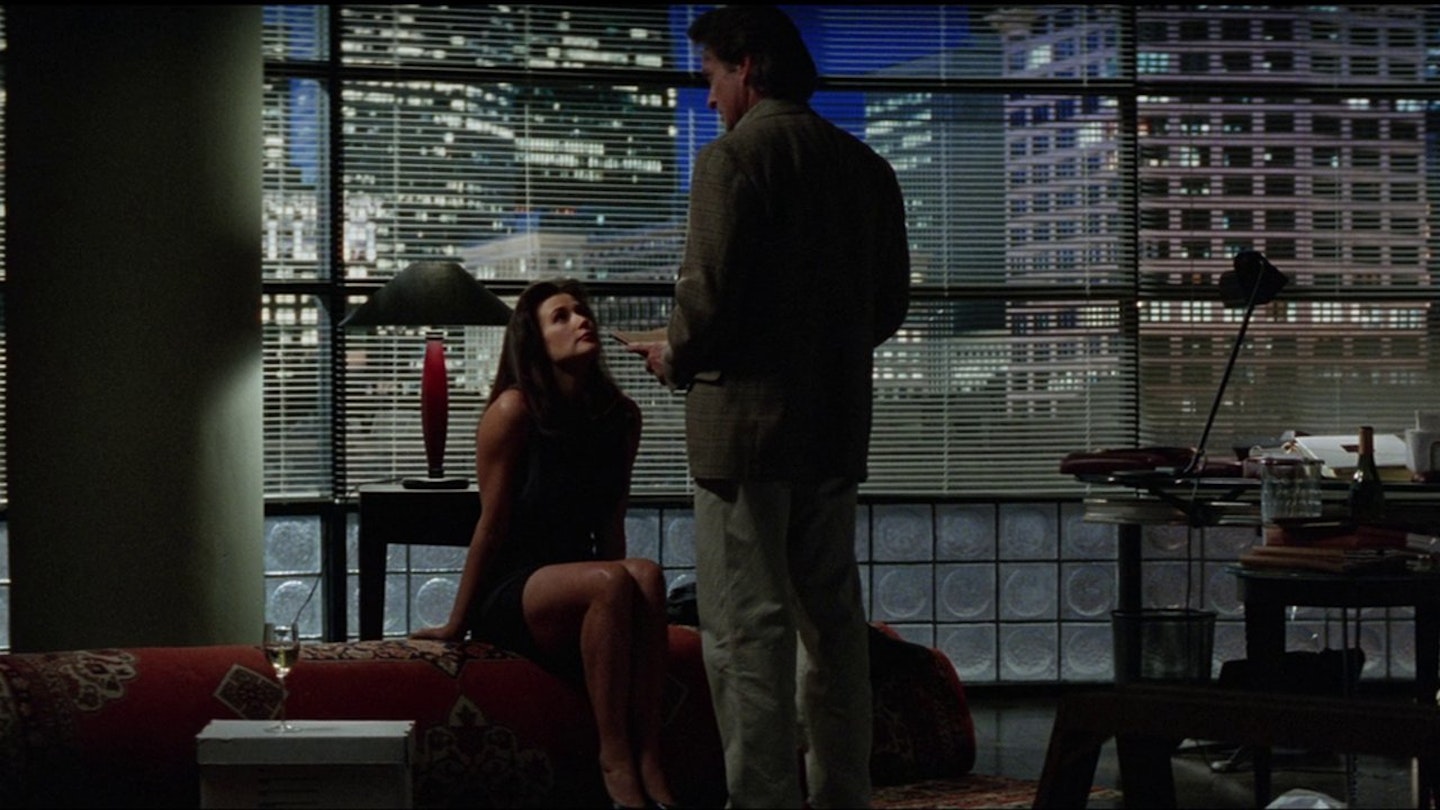Having recreated dinosaurs in Jurassic Park and taken a wholehearted swipe at Japanese corporations with Rising Sun, blockbusting author Michael Crichton turned his money-raking muse to the subject of sexual harassment. But heres the rub: Disclosure focuses on a woman sexually harassing a man(ital). Published to much furore and no end of dinner party jabber, the novel, about a female boss demanding favours beyond the call of duty from her male underling at a hi-tech computer firm, was a massive best-seller and Hollywood duly forked out piles of cash for the movie rights.
However, after burning his fingers on previous movie adaptations of his work, Crichton kept tight control of this one, with final approval on those filling the critical roles. As director he chose Barry Levinson, a once major talent gagging for a commercial venture to breathe life back into his flagging career after Toys and Jimmy Hollywood. As Tom Sanders, the production executive at Seattle computer firm DigiCom on the verge of a lucrative merger, he had always had Michael Douglas in mind. While as Meredith Johnson, the blonde-haired, voluptuous power babe who beats Sanders to his expected promotion and then lands him in the soup with her major league come-on, came the surprising choice of the auburn-locked, not-terribly-unsexy, Demi Moore.
After refusing a sexual tryst many red-blooded men would kill for, Sanders finds himself beaten to the punch when she claims he harassed her(two ital). He naturally refutes the charges, turns to arch-harassment lawyer Roma Maffia for help, kicks up no end of fuss and, in threatening to collapse the merger, loses just about every friend hes got.
All this segues into some deeper, devilish corporate deception involving Crichtons current pet topics virtual reality and hyper-speed disc-drives though its best not to bother trying to understand the buckets of techno-babble, since this is ultimately little more than splendid piece of high-spec trash, about as profound as a knees-up at Butlins. And as a supposed hotbed of controversy, the message-making arrives as a slice of only-in-America tittle-tattle rather than some earth-shattering exposé of the latest social ill.
The performances are well up to scratch, with Douglas replaying his male-in-peril thing with predictable ease, brewing up a fine chemistry with the vampish Moore as they U-turn from sexual heat to a frost you could ski on. All of which adds up to a glossy, tightly directed caboodle that entertains in a way that only Tinseltown can muster and is guaranteed to have you talking for weeks to come.
